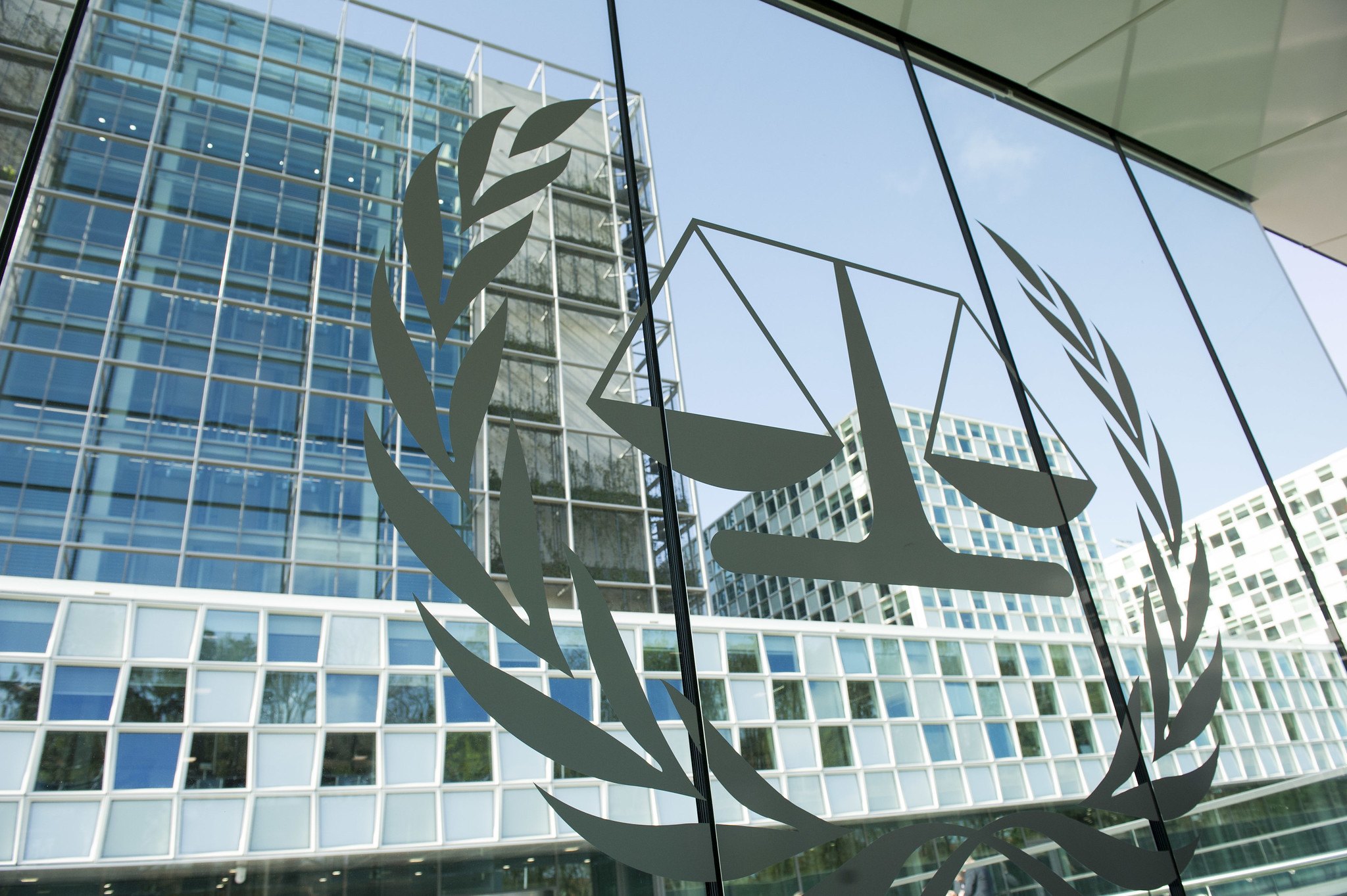Foreign Official Immunity & Executive Branch Law-Making
Earlier this week the Solicitor General filed its brief in Samantar v.
Published by The Lawfare Institute
in Cooperation With

Earlier this week the Solicitor General filed its brief in Samantar v. Yousuf, as it was invited to do by the Supreme Court back in June. The Court has already issued an opinion in this case in 2010, holding that the Foreign Sovereign Immunities Act does not apply to individual officials of foreign governments, and that Samantar’s entitlement to immunity is governed instead by common law. On remand, the lower courts denied immunity to the former Somalian official, and he has now petitioned the Court for certiorari again. Although the case raises important questions of international law, as discussed by me here and Bill Dodge here, my focus in the post is on the constitutional power of the Executive Branch. The Solicitor General’s brief argues that the Executive Branch has absolute control over the development of the common law of foreign official immunity, as well as the application of that common law in particular cases. The argument is both expansive and unconvincing. The Executive Branch has no general authority to make domestic law, as the Court has held in Youngstown and Medellin v. Texas. The power to do so in official immunity cases is said to come from the power to recognize foreign governments (as the Fourth Circuit reasoned with respect to status immunities) or, more broadly, the President’s power to “conduct foreign relations” (as argued by the Solicitor General).
I. Recognition
The recognition argument is weak, in part for reasons not addressed in any of the briefing for this case. The President’s power to recognize foreign governments (which is derived from the power to receive Ambassadors and other public ministers) does not include the power to determine the domestic legal effect of such recognition. No matter whether courts or the Executive Branch make the determinations, they are distinct. The legal entitlement to immunity from the jurisdiction of domestic courts, both status or conduct-based, may depend upon changes in the common law, international law, and the passage of a treaty or statute. (For an excellent and nuanced discussion of the constitutional issues with respect to head of state immunity, see Lewis Yelin’s article in Vanderbilt Journal of Transnational Law). The entitlement to immunity does not, in other words, flow automatically from the act of recognition. The SG’s brief itself makes this clear when it notes the various factors relevant to an immunity determination by the Executive Branch. For heads of state, the legal entitlement to immunity under both domestic and international precedents currently follows as a matter of course from the status determination – but even this law for heads of state could change and develop as it has for state immunity itself. The Constitution vests the President with the power of recognition, not the power to make domestic law that is related to recognition. The Supreme Court drew the distinction between recognition and its legal effect in the Guaranty Trust Company case, reasoning that the Executive Branch's act of “recognizing a foreign government and in receiving its diplomatic representatives” is conclusive on domestic courts, those courts are nonetheless free to determine the “legal consequences” of recognition for themselves.
II. Foreign Relations
The SG’s brief does not rely on the recognition power, but instead on the President’s power to “conduct foreign relations.” The President’s power to conduct foreign relations does not include a general power to make domestic law, however, as Youngstown demonstrates. The Court has held that some international claim settlements agreements other than Article II treaties can be given direct effect in domestic courts, as in cases like United States v. Belmont and American Ins. Assoc. v. Garamendi. But the Court has also reasoned more recently in Medellin v. Texas that “the claims-settlement cases involve a narrow set of circumstances: the making of executive agreements to settle civil claims between American citizens and foreign governments or foreign nationals.” Those circumstances are not applicable to immunity, the determination of which is not necessarily related to any form of agreement with a foreign government. In Medellin itself, the Court rejected an attempt by the Solicitor General to construe the Executive Branch’s law-making power more broadly. As the Court said (quoting Youngstown), “the President's power to see that the laws are faithfully executed refutes the idea that he is to be a lawmaker.” None of these cases make their way in to the SG’s brief, however. It relies instead on a handful of admiralty cases from the late 1930s and 1940s which held, with very little reasoning in support, that the President had the power to make state immunity determinations binding on the federal courts. As I have argued at length elsewhere, those admiralty cases were poorly reasoned at the time, and they do not bind the courts today with respect to non-statutory immunity determinations.
III. Youngstown & Congress
The SG’s brief fails to address explicitly what is likely the most convincing argument in favor of Executive control of immunity determinations: implied affirmation or acquiescence by Congress. Indeed, the brief does not situate its analysis within the Youngstown framework – a case not mentioned at all in the SG’s brief. The Foreign Sovereign Immunities Act ended executive suggestions of immunity for cases against states themselves, but the Act does not apply to cases against individuals. In its 2010 Samantar opinion, the Court noted that “[w]e have been given no reason to believe that Congress saw as a problem, or wanted to eliminate, the State Department’s role in determinations regarding individual official immunity.” One might argue, therefore, that Congress has implicitly affirmed or accepted Executive Branch immunity determinations in cases against officials, as suggested by Curt Bradley here. I think this argument is also unconvincing. There were very few pre-FSIA official immunity cases, as the Court also emphasized in Samantar: “although questions of official immunity did arise in the pre-FSIA period, they were few and far between. The immunity of officials simply was not the particular problem to which Congress was responding when it enacted the FSIA.” This is a thin basis on which to infer congressional approval. It is also far removed from cases like Dames & Moore which relied on statutes designed to enhance executive power. The FSIA was explicitly designed in contrast as a limitation on the power of the Executive Branch. Finally, there is likely to be overlap between issues of state and individual immunity, and state immunity issues are statutorily committed to Congress and the courts. FSIA therefore does not preserve or acquiesce in a long-standing, pre-existing practice – the practice today will be informed in many ways by the statute itself.
IV. Should the Court Grant Certiorari?
Despite my disagreement with some aspects of the Solicitor General’s brief, I agree with the conclusion: the Court should vacate and remand. The Court should summarily dispose of the case without an opinion, vacate the Fourth Circuit’s opinion, and remand with instructions to reconsider the case in light of ongoing developments in Somalia. Political developments in Somalia may permit the case to be resolved on narrower grounds, perhaps leaving for another day some of the difficult questions of international law addressed by the Fourth Circuit. The Executive Branch may also wish provide its views on the content or desirable development of international or domestic law in this case, as it does many others. The views of the Executive Branch are not, however, binding on the courts.
Ingrid Wuerth Brunk is the Helen Strong Curry Professor of International Law at Vanderbilt Law School, where she also directs the international legal studies program. She is a leading scholar of foreign affairs, public international law and international litigation. She serves on the State Department’s Advisory Committee on Public International Law, she is a Reporter on the American Law Institute’s Restatement (Fourth) on U.S. Foreign Relations Law, and she is on the editorial board of the American Journal of International Law. She has won Fulbright and Alexander von Humboldt awards permitting her to spend substantial time in Germany and she is an elected member of the German Society of International Law.


.jpg?sfvrsn=4c0f5277_5)

